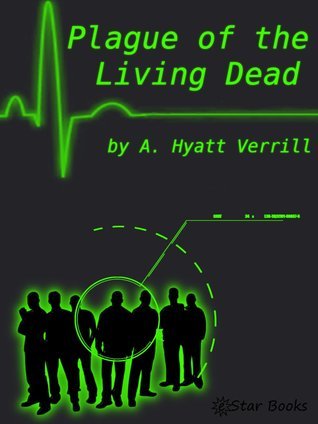
Dr. Farnham had thought to help the world with his invention, instead he released a plague upon it. Excerpt The astounding occurrences which took place upon the island of Abilone many years ago, and which culminated in the most dramatic and most remarkable event in the history of the world, have never been made public. Even the vaguerumours of what happened in the island republic were regarded as fiction or as the work of imagination, for the truth has been most zealously and carefully concealed. Even the press of the island co-operated with the officials in their desire to maintain absolute secrecy regarding what was taking place, and instead of making capital of the affair, the papers merely announced - as the government had requested them to do - that an unknown, contagious disease had broken out upon the island and that a most rigid quarantine was being enforced. But even if the incredible news had been blazoned to the world, I doubt if the public would have believed it. At any rate, now that it is forever a thing of the past, there is no reason why the story should not be told in all its details. When the world-famous biologist, Dr. Gordon Farnham, announced that he had discovered the secret of prolonging life indefinitely, the world reacted to the news in various ways. Many persons openly scoffed and declared that Dr. Farnham was either in his dotage or else had been misquoted. Others, familiar with the doctor's attainments and his reputation for conservative statements, expressed their belief that, incredible as it might seem, it must be true; while the majority were inclined to treat the matter as a joke. This was the attitude of nearly all the daily papers; the Sunday supplements had elaborately illustrated the entirely unfounded and ridiculous stories purporting to voice the doctor's views and statements on the subject. Only one paper, the reliable, conservative, and somewhat out of date Examiner saw fit to print the biologist's announcement verbatim and without comment. Upon the vaudeville stage, and over the radio, jokes based on Dr. Farnham's alleged discovery were all the rage; a popular song in which immortality and the scientist were the leading themes was heard on every side and at length. In sheer desperation, Dr. Farnham was forced to make public a detailed statement of his discovery. In this, he clearly pointed out that he had not claimed to have learned the secret of prolonging human life indefinitely, for, in order to prove that he had done so it would be necessary to keep a human being alive for several centuries, and even then the treatment might merely have prolonged life for a certain period and not for ever. His experiments, he stated, had hitherto been confined to the lower animals and by his treatment of them be had been able to extend their normal span of life four to eight times. In other words, if the treatment worked equally well with human beings, a man would live for five to eight hundred years - quite long enough to fulfill most persons' ideas of immortality. Certain persons, whose names he declined to reveal, had taken his treatment, the doctor stated, but of course its effect had not yet had time to prove his claims. He added that the treatment was harmless, that a chemical preparation injected into the system figured in it, and that he was willing to treat a limited number of persons if they wished to experiment and test the efficacy of his discovery. For Dr. Farnham, who was sparing of words both in conversation and writing, and who rarely gave out anything for publication, this statement was remarkable and, so his champions claimed, proved that he was sure of his stand. But such is the psychology of the average person, that the biologist's perfectly logical and straightforward explanation, instead of convincing the public or the press, served merely to bring an even greater storm of ridicule upon his head.
Author
Alpheus Hyatt Verrill, known as Hyatt Verrill, was an American zoologist, explorer, inventor, illustrator and author. He was the son of Addison Emery Verrill (1839–1926), the first professor of zoology at Yale University. Hyatt Verrill wrote on a wide variety of topics, including natural history, travel, radio and whaling. He participated in a number of archaeological expeditions to the West Indies, South, and Central America. He travelled extensively throughout the West Indies, and all of the Americas, North, Central and South. Theodore Roosevelt stated: "It was my friend Verrill here, who really put the West Indies on the map.” During 1896 he served as natural history editor of Webster's International Dictionary., and he illustrated many of his own writings as well. In 1902 Verrill invented the autochrome process of natural-color photography. Among his writings are many science fiction works including twenty six published in Amazing Stories pulp magazines. Upon his death, P. Schuyler Miller noted that Verrill "was one of the most prolific and successful writers of our time," with 115 books to his credit as well as "articles in innumerable newspapers." Everett F. Bleiler described Verrill's "lost race" stories as "more literate than most of their competition, but stodgy." When the Moon Ran Wild (1962) was published posthumously using the name Ray Ainsbury.